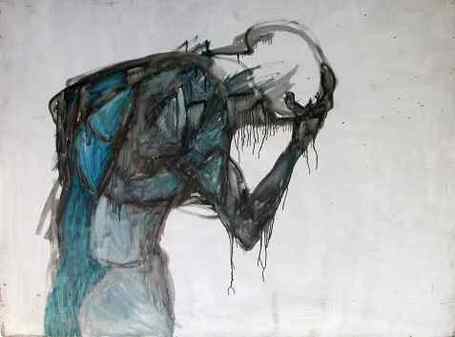ADDICTIONUsing substances or undertaking repetitive behaviors like gambling to the point that it causes significant impairment or distress is what we define as addiction. At first, the use of a substance is an impulsive act that leads to an immediate and temporary reward. Over time, however, tolerance develops and the act becomes compulsive. Use is preceded by craving and followed by withdrawal, both of which reinforce the act leading to a maladaptive pattern of seeking and using a substance. This can lead to disruption of work, family, and one's social life.
Addiction is always associated with ambivalence towards the perceived rewards versus long-term consequences. Psychotherapeutic techniques can help you gain insight into these behaviors while helping you redirect your behaviors towards the goals of abstinence or harm reduction. There are also medications that can help you achieve your goals in regards to substance use. Addiction often does not stand alone and can be associated with other mental health conditions that should receive concomitant attention and treatment. |
MENTAL HEALTHMood changes and anxiety are natural emotional states that we have evolved to understand and adapt to life events. Mood disorders and anxiety disorders, however, are extreme emotional states that lead to significant impairment or distress.
Examples of mood disorders are depression and bipolar disorder. Patients with depression may experience dysphoria, irritability, reduced concentration, insomnia, loss of appetite, and a reduced ability to enjoy life. Anxiety disorders encompass obsessive compulsive disorder, post traumatic stress disorder, generalized anxiety disorder, social anxiety disorder, performance anxiety, panic disorder, and simple phobias. People with anxiety tend to avoid things that make them anxious and this, in turn, reinforces their anxiety. Other mental illnesses that respond well to psychotherapy and medication include attention deficit disorder, delusional disorder, and schizophrenia. |
SEXUAL HEALTHSexual dysfunction is common, affecting up to 30% of adults. Sexual dysfunction characterizes a disturbance in a person's ability to respond sexually or to experience sexual pleasure. Common problems in this area are reduced libido, erectile disorder, premature or delayed ejaculation, pain with intercourse, or orgasmic disorder.
A paraphilia is a sexual interest that differs from the classical interpretation of sex (genital stimulation). Paraphilic disorders involve sexual preferences that cause significant distress or impairment. Taken together, sexual dysfunction and paraphilic disorders only necessitate treatment when the individual feels distressed. At that point, there are many psychotherapeutic approaches available, including dynamic, cognitive, and behavioral approaches that can help individuals and couples. Some disorders can also be helped with medication when appropriate. |
PSYCHOTHERAPY MODALITIES
The information below is by no means exhaustive and does not serve as medical advice, but should offer some insight into psychotherapeutic modalities available.
MENTAL HEALTHIndividual Therapy: There are a wide range of psychotherapy models that target an equally wide range of mental disorders. The appropriate therapy depends on the patient's goals and preferences. I most commonly practice cognitive behavioral therapy, supportive psychotherapy, and brief psychodynamic therapy.
|
ADDICTIONIndividual Therapy: Cognitive Behavioral Therapy has the most evidence in support of its efficacy in the treatment of substance use disorders. However, other forms of therapy, such as supportive psychotherapy, are more appropriate and successful for a particular individual. The most important aspect of psychotherapy is that it addresses addiction head on rather than treating it as a lesser comorbid condition of another mental health disorder.
|
SEXUAL HEALTHBehavioral Therapy: Sensate Focus as developed by Masters and Johnson
Individual Therapy: Cognitive-Behavioral Therapy, Interpersonal Therapy, Supportiv Psychotherapy Couples Therapy: behavioral therapy and couples counseling aimed at reducing conflict and increasing communication |
PSYCHIATRIC MEDICATIONS
The information below is by no means exhaustive and does not serve as medical advice, but should offer some insight into some of the medications available for the treatment of common mental health and addiction disorders. During a consultation, much more information will be available, including potential risks, benefits, and alternatives for available medications.
MENTAL HEALTHAnxiety: First line medication for anxiety disorders, much like depression, is an SSRI or SNRI medication. Gabapentin, buspar, propranolol, benzodiazepines, and others are also helpful in the treatment of certain anxiety disorders and have mechanisms of action that distinct from that of an SSRI or SNRI.
Bipolar disorder: Bipolar disorder is treated with mood stabilizers that target both depression and manic symptoms. There are a number of mood stabilizers and the choice of medication is guided by specific patient parameters. Common mood stabilizers are lithium and depakote, but there are many others.
Depression: Much of the treatment of depression focuses on the premise that major depression is characterized by a deficit in seratonin neurotransmission. First line medication for depression is a selective serotonin reuptake inhibitor (SSRI), common SSRIs are zoloft, prozac, paxil, lexapro, and many others. Another class of medications are seratonin norepinephrine reuptake inhibitors (SNRI) such as effexor and cymbalta. Remeron is another medication that acts on serotonin and can relieve symptoms of depression. Wellbutrin also acts on serotonin, but its primary action is on the neurotransmitter dopamine.
Attention Deficit Hyperactivity Disorder: ADHD is treated as a deficit in neurotransmission of dopamine and norepinephrine. One class of medication that helps increase dopamine levels are stimulants like amphetamine while another is bupropion. There are short-acting stimulants and long-acting stimulants that help people focus and multitask. Strattera is a medication that instead increases norepinephrine and has been shown to help ameliorate the symptoms of ADHD.
|
ADDICTIONAlcohol use disorder: There are a number of medications that have evidence for efficacy in the treatment of heavy alcohol use. Naltrexone is an opioid receptor blocker and can reduce the desire to binge drink in certain individuals. Campral modulates glutamatergic activities and can help reduce alcohol cravings when started soon after detoxification from alcohol. Antabuse is a medication that slows the metabolism of alcohol leading to an aversive reaction when alcohol is used.
Opiate use disorder: Heroin and prescription opioid addiction is very difficult to treat without the use of medication for detoxification by relieving withdrawal symptoms. Once detoxified from opiate use, available medications focus on a maintenance or an antagonist approach to treatment. Maintenance medications replace the opiate with medication that reduces the harm opiates can cause. Examples of these medications are methadone (requires joining a methadone maintenance program) and suboxone that can be prescribed in a private practice setting. Antagonist medication, like naltrexone, blocks the effects of opiates when someone uses heroin or a prescription opioid.
|
LINKS
PUBLICATIONS AND NEWS
Feinleib JL, Kang JS, Knox S, Ketteringham MA, Kauss RS. Pro-myogenic members of the Ig and cadherin families associate to positively regulate differentiation. Proc Natl Acad Sci. USA 2003 Apr 1; 100(7): 3989-94.
Yao M, Ketteringham MA, Khan C. Residents Note Institute Perfect for Learning, Networking. Psychiatric News. 2011 Sep 2; 46(17): 28-29.
Khan CT, Ketteringham MA, Yao MJ. Hearts and Minds: Popular Perceptions of Violence and Mental Illness and Strategies to Combat Stigma.
Levin, Aaron. Media Cling to Stigmatizing Portrayals of Mental Illness. Psychiatric News. December 16, 2011.
Video: NYC Hospital Giving Away Narcan Kits in an Effort to Combat Drug Overdose. NBC, NY 8/28/2014.
Video: Can legal marijuana be an alternative to opioids for pain relief? : 9/5/2014
Karen Drexler, M.D.; Michael Ketteringham, M.D., M.P.H.; Keith Hermanstyne, M.D., M.P.H. Position Statement on Residency Training Needs in Addiction Psychiatry for the General Psychiatrist. APA position Statement; 11/2014.
Gosling, Elizabeth. Mental Illness in the Media. Beginning Journalism. 10/23/2015.
Ketteringham MA. Cannabis chapter. Eds. Petros Levounis, Erin Zerbo. Pocket Guide to Addiction Assessment and Treatment. American Psychiatric Publishing, May 2, 2016.
Kirane H, Ketteringham M, Bereket S, Dima R, Basta A, Mendoza S, Hansen H Awareness and Attitudes Toward Intranasal Naloxone Rescue for Opioid Overdose Prevention. J Subst Abuse Treat. 2016 Oct; 69:44-9.
Stop Mental Health Stigma Now. 12/2/2016
Abusing pot, booze lowers teens' chances for success in life, but that is not necessarily an argument against legalization. 11/7/2017.
Kids who use pot struggle to succeed. 12/17/2017.
Do Over-the-Counter Painkillers Alter Emotions, Reasoning? U.S. News and World Report, February 6, 2018.
Treating pain: Are opioids the only alternative? Staten Island Advance, April 23, 2019.
I Tried it: A Weeklong Digital Detox. Healthline, June 28, 2019.
Medication assisted treatment helping to reduce borough overdoses, addiction experts say. Staten Island Advance, July 29, 2019.
Yao M, Ketteringham MA, Khan C. Residents Note Institute Perfect for Learning, Networking. Psychiatric News. 2011 Sep 2; 46(17): 28-29.
Khan CT, Ketteringham MA, Yao MJ. Hearts and Minds: Popular Perceptions of Violence and Mental Illness and Strategies to Combat Stigma.
Levin, Aaron. Media Cling to Stigmatizing Portrayals of Mental Illness. Psychiatric News. December 16, 2011.
Video: NYC Hospital Giving Away Narcan Kits in an Effort to Combat Drug Overdose. NBC, NY 8/28/2014.
Video: Can legal marijuana be an alternative to opioids for pain relief? : 9/5/2014
Karen Drexler, M.D.; Michael Ketteringham, M.D., M.P.H.; Keith Hermanstyne, M.D., M.P.H. Position Statement on Residency Training Needs in Addiction Psychiatry for the General Psychiatrist. APA position Statement; 11/2014.
Gosling, Elizabeth. Mental Illness in the Media. Beginning Journalism. 10/23/2015.
Ketteringham MA. Cannabis chapter. Eds. Petros Levounis, Erin Zerbo. Pocket Guide to Addiction Assessment and Treatment. American Psychiatric Publishing, May 2, 2016.
Kirane H, Ketteringham M, Bereket S, Dima R, Basta A, Mendoza S, Hansen H Awareness and Attitudes Toward Intranasal Naloxone Rescue for Opioid Overdose Prevention. J Subst Abuse Treat. 2016 Oct; 69:44-9.
Stop Mental Health Stigma Now. 12/2/2016
Abusing pot, booze lowers teens' chances for success in life, but that is not necessarily an argument against legalization. 11/7/2017.
Kids who use pot struggle to succeed. 12/17/2017.
Do Over-the-Counter Painkillers Alter Emotions, Reasoning? U.S. News and World Report, February 6, 2018.
Treating pain: Are opioids the only alternative? Staten Island Advance, April 23, 2019.
I Tried it: A Weeklong Digital Detox. Healthline, June 28, 2019.
Medication assisted treatment helping to reduce borough overdoses, addiction experts say. Staten Island Advance, July 29, 2019.


